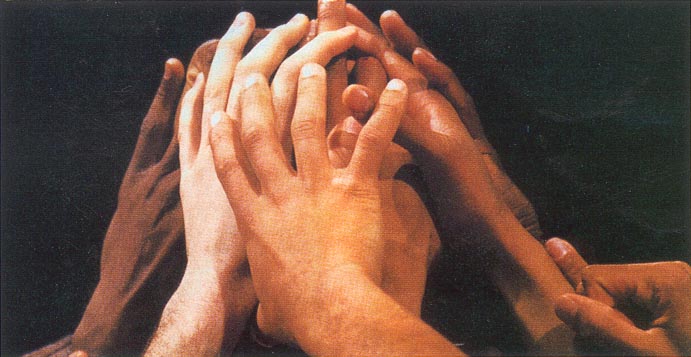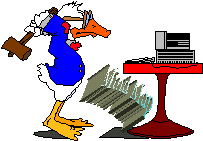|
|
|
|
peer education
........... Una strategia educativa volta ad attivare un processo naturale di passaggio di conoscenze, di emozioni e di esperienze da parte di alcuni membri di un gruppo ad altri membri di pari status; un intervento, secondo questa prospettiva, che mette in moto un processo di comunicazione globale, caratterizzato da un’esperienza profonda ed intensa e da un forte atteggiamento di ricerca di autenticità e di sintonia tra i soggetti coinvolti. [...] Questa pratica va oltre il momento educativo e diviene una vera e propria occasione per il singolo adolescente, il gruppo dei pari o la classe scolastica, per discutere liberamente e sviluppare momenti transferali intensi........ from
http://www.peer-education.it/
Europeer
Europeer
is an international project facilitating collaboration and offering
support to young people, practitioners, policy makers and researchers
working in youth peer education. It is founded on a partnership
including the 15 European Union countries, the Czech Republic, WHO
Europe and UNAIDS. It began in 1997, and this year completed the
groundwork for a European youth peer education network.
Different models of Peer Support
Mind Map was set up in 1997 with the brief of "raising awareness around mental health issues - in schools" The way that Brent Mind decided to achieve this was through a peer education project. This means that Mind attempted to get young people from the local community involved in designing and running the project. The reason for this was to have maximum impact with the target group we were raising awareness with. Mind Map wanted to be a service for young people run by young people.In order to do this it is important to understand the context in which we are working. The context being that young people are increasingly under more stress and this is reflected in figures that show that mental health problems in young people have increased significantly over the last decade. Brent Mind could have decided to have one project worker working with schools and providing talks on the subject - thus raising awareness that way. However, we thought that we would be able to reach more people and spread our message more widely if we had a team of volunteers who could work with classes of pupils in schools, providing workshops and discussions on mental health issues.For all these reasons we decided to set up a peer education programme. This is based on the Mind Map philosophy that empowerment of young people to make informed choices is effective as an intervention on many health issues. To be a true community based project we need young people from the community to plan, provide, monitor and evaluate the work that is carried out on behalf of Mind Map. In this way we seek to be a "bottom up" rather than "top down" organisation.In order to achieve this inclusion of young people in our service delivery we decided to advertise for young people to join our free training course on mental health, young people and presentation skills. The course was set up by the Mind Map project worker and an external consultant, with expertise on marketing health promotion to young people and minority communities.Trainees were aged between 16-25 and mostly came from the local area. Brent has one of the highest rates of minority groups in the country and Mind Map wanted to make sure that access to the training was available to all sections of Brent's diverse community. It was also important to make sure that the volunteers were representative of the schools which we intended to work in. For example, one school in the area has a 70% Asian (mainly Hindu) population. Whilst another school in the locality comprises of 70% African-Caribbean population. In order to be most effective we have to make sure that the Mind Map volunteers are representative of these groups. Peer Education was our chosen method of working with young people for a number of reasons: Young people are more likely to identify with other young people, perhaps slightly older than they are. Information from this group is perceived to be credible and believable.The peer educators understand where young people are at and have a better understanding of youth culture and the prevailing trends and difficulties in being at school and growing up.Language used by peer educators is likely to be similar to the language used by the school-aged population. It is important that it is non-jargonistic and accessible to all pupils in the class.The peer educators attempt to be non-judgemental in the issues that they cover. They receive training on promoting tolerance and understanding the negative impact of stigma and discrimination. They encourage open friendly discussion and challenge negative stereotypes and attitudes. The peer educators discussing topics such as eating disorders and depression automatically break down stigma attached to discussing such topics. Pupils can sometimes think such issues are taboo to discuss until they hear other young people taking about such things in a classroom setting.Once the peer educators have completed the training course they design and input as to how the workshops should be developed and implemented. There is always an emphasis on fun, inclusive debates and activities. Hence the class have handouts to work on and have debates with other pupils. The peer educators are trained in leading workshops but they facilitate rather than stand at the front of the class and talk for the hour. In order to set up a peer education project like Mind Map you need to think about the following: 1. What is the need in the area, What are the local problems in your Borough?
Are there services similar to this in your area? Is there a peer
education project running something similar in your area? 2. Training the peer educators What are you training on? Why? How suitable is the material to their age/culture/experiences? Have you a training pack that you want to develop the work from? Have you lined up work/opportunities for the peer educators to demonstrate their new skills? Have you acknowledged their achievement through certificates of attendance and an award ceremony? How will you provide effective support to them in their roles? It is important to have some idea of where they are heading when they have finished the training. For example, a clear idea of what opportunities they have after the completion of the training course and how they are expected to build on and develop their skills.The training of peer educators must focus on personal growth and self-development to have maximum impact on the educators. It is well known that to learn most effectively people must be able to set aside their fear and anxiety and model examples of excellence (learning through doing). It also requires being honest and explicit with the models you are using and the values that underpins them. If a young person can take away something personal from the training - something that they have reached a better understanding about themselves from - they are more likely to find it of value and to have belief in the benefit of the work being done. Next - Working in schools Schools can sometimes be difficult to access for voluntary organisations seeking to work raising awareness within them. A pack for schools explaining the aims and objectives of your project is helpful for schools to understand the purpose of the visit. Work done in the schools should build on the National Curriculum. Raising awareness on health issues is usually done in Personal Social Health Education (PSHE) or the equivalent. Classes usually last 50mins. Each workshop should contain a clear aim, method, objective and conclusion. The conclusion should relate to the National Curriculum Key Stages specifying what part of the curriculum it meets. (This is a useful way in making your organisation part of the information that has to be provided in schools anyway.) It is also vital to have Policy and Procedures that the whole school agrees to and which integrate and co-ordinate with school's policy and procedure. Having a policy on disclosure and Child Protection issues is very important so that the school and the peer education project have clear and understood boundaries. Monitoring and evaluation It is important to monitor and evaluate the training delivered to the peer educators to find out what perception shifts have been facilitated by the training - and also look at ways to improve and refine the training.Each workshop in school should be evaluated and statistical information gathered to give the project some idea of what young people thought of the workshop, and how they think it could have been improved. Also, it is useful to find out from the sheet whether the pupils were clear as to what the point of the workshop was.With the development of a project like this, it is advisable to get an independent evaluation of the effectiveness of the project in order to affect changes in how it is running, and also to use as a tool to allow other schools to use your service after proving it's effectiveness in raising awareness on sensitive issues. Style The whole style of the project has to be thought about - with a clear aim/philosophy and method to achieve it. The logo of the project should be done in a style that attracts and is recognisable to the target group. If it has some relation to the topic that is useful as well. The Mind Map logo was designed by a young person who attended the training programme and became involved in the project through their own initiative. It is through this word of mouth and by having a service where young people are given the space to be creative that they feel included and catered for. The logo is recognised as a symbol of Mind Map and is included on all handouts and publicity that Mind Map distributes to create awareness of the project and also to be viewed as an informal and fun organisation that caters for young people. The project also benefits Brent MIND by bringing in younger people to attend events and celebrations which otherwise may only be attended by older age groups. This has the effect of decreasing stigma and providing events that are attended by all sections and ages of Brent's diverse community. Written by Sunil Puri - Mind Map Co-ordinator for mental health awareness in schools. 01/2001 from http://www.mentalhealth.org.uk/peer/models.htm a cura di nadia scardeoni per Intercultura di Interlinea link
risorse in rete http://www.ifh.org.uk/lowincome_women.html http://www.healthcenter.vt.edu/HE/wpe/wpe.htm http://www.frostburg.edu/clife/safe/BURG/burg.htm http://www.georgetown.edu/student-affairs/healthed/PE.html http://www.livingwell.buffalo.edu/power.shtml http://www.binghamton.edu/health/peered.htm http://www.peered.uconn.edu/programs.asp http://www.alcoholdrugcouncil.org/Pages/peer2.htm http://www.uta.edu/health_services/peer_eds.html
http://www.illusiontheater.org/education/peered/ http://www.healthcenter.vt.edu/HE/wpe/wpe.htm http://www-gewi.kfunigraz.ac.at/peeredu/ http://www.bacchusgamma.org/thepeer.asp http://www.princeton.edu/puhs/pepha.html http://www.mscd.edu/~counsel/peereducationprogram.htm http://www.housing.umass.edu/shaha/ http://www2.ucsc.edu/aod/Classes.html http://www.utulsa.edu/alexhealth/PEP.htm |
La pagina
- Educazione&Scuola©


 How to set up a Peer Education Project - an example of
practice
How to set up a Peer Education Project - an example of
practice